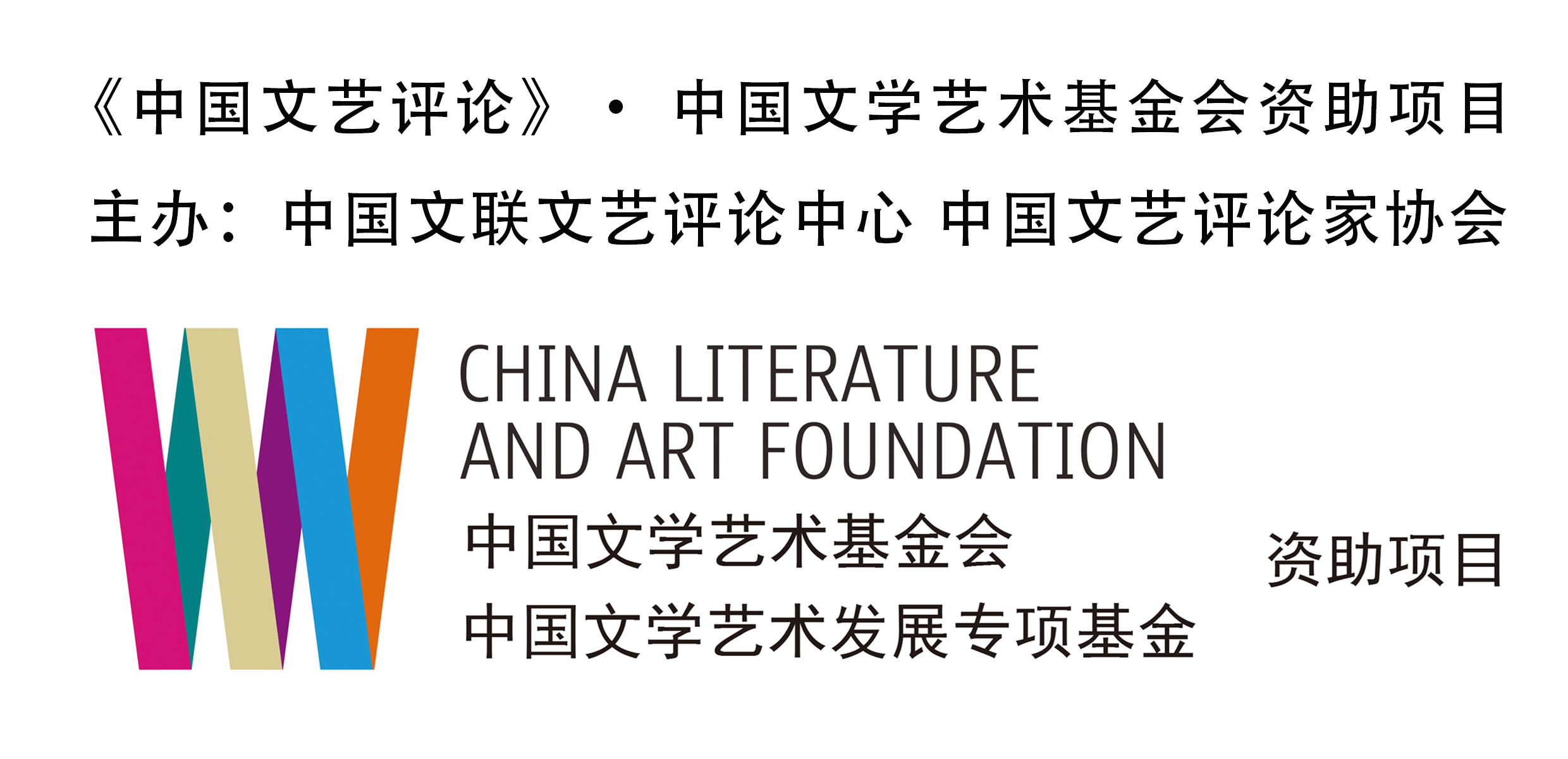
Special Feature
■Strengthen Cultural Confidence, Stay Rooted in Real Life Promote High-Quality Development of Literary and Art Criticism in the New Era(Zhang Zheng)
Hot Spots Observation • Online Influencers and Followers: Multi-dimensional Analyses of A Cultural Phenomenon(I)
■The Cult of Objects in the Phenomenon of Online Celebrities and Its Symptoms: A Psychoanalytic Perspective on Contemporary Sociopathology(Lan Jiang)
Abstract: There have been numerous analyses of the phenomenon of online celebrities in the digital age. Beyond political economics, communication theory, and sociological analysis, we can also use the psychoanalytic theories of Freud and Lacan to explore the causes of this phenomenon. From an individual perspective, the online celebrity phenomenon represents an individual’s fetishism or object fetishism, meaning that in the void created by primal trauma, a cult of the object emerges, and individuals can compensate for the spiritual void caused by symbolic castration by continuously seeking out such objects. In a capitalist consumer society, the production of such fetish objects has been universalized and commodified by the capitalist symbolic order, leading to the creation of a universal symptomatology under the symbolic order. The root of this universal symptomatology does not lie in cyberspace but in the pathology of real society. Social pathology represents the symptoms of society as a whole, and individuals under such pathology shape their needs and desires according to a certain pattern. More accurately, the root of this social pathology stems from the ideological state apparatus analyzed by Althusser. The online influencer model itself is an ideological apparatus within the digital cyberspace, continuously producing subjects within the digital space while creating universal scars and symptoms, ultimately forming the social pathology under the online influencer phenomenon.
Keywords: online influencer phenomenon, fetishism, psychoanalysis, social pathology
■Technological Iteration, Emotional Capital and Algorithmic Myth: A Multi-dimensional Perspective on China's Internet Celebrity Culture(Hu Jiangfeng)
Abstract: The internet celebrity community exhibits a dynamic and open nature, with its development unfolding in three stages: the grassroots carnival in the information portal era, the capital transformation in the social media era, and the virtual-real symbiosis in the intelligent media era. The vitality of influencers stems from emotional labor and the "capital-emotion" exchange mechanism, which is inseparably linked to the emotional value they provide. To achieve the leap from "internet celebrity" to "enduring fame celebrity", one must transcend algorithm dependency, strike a balance among cultural authenticity, technological criticality and emotional publicity. And by consistently accumulating emotional capital, one can create stable, high emotional value, thereby breaking the cyclical pattern of "ephemeral effect".
Keywords: internet celebrity culture, technology, emotional capital, emotional value, algorithm
■Trustworthiness and Likability: An Analysis of the Cultural Psychology and Media Mechanisms behind the Impact of Social Media Influencers(Deng Jianguo)
Abstract: The "online influencer" phenomenon is driven by the principles of cultural anthropology and forms an isomorphic relationship with today's social media. Individuals have an enduring need to pursue social recognition through the "pursuit of beauty and admiration of strength", and today's social media platforms, smartphones and short videos provide them with unprecedented opportunities for self-expression and the search for recognition, fostering a new form of "organic solidarity" in human society. Social media influencers employ a wide range of persuasion and influence strategies, gaining significant influence in commercial, cultural, political and other spheres. However, the influence of "online influencers" is a double-edged sword -- if misused, it can diminish the media literacy among internet users, reinforce social biases, and distort the behavior of "fan circles". Understanding the influence mechanism behind influencer impact can help us better comprehend social media culture, critically assess its advantages and drawbacks, and guide it toward a balance between "credibility" and "cuteness", ultimately promoting the healthy development of both individual influencers and the industry as a whole.
Keywords: social recognition, social media, online influencer, media literacy, persuasion strategy
■A Critical Reflection on Online Celebrity Consumption and the "Collapsed House" Phenomenon in the Digital Era(Zeng Yiguo)
Abstract: Online celebrities in the digital era have surpassed the simple reference to early online celebrities, covering a wide range of cultural landscapes from people to objects to cities. Behind the landscape of online celebrities, there are huge economic goals based on traffic and a life politics that desires to "become the center". Online celebrities, as a political and economic phenomenon, represent a new consumer ideology and consumer concepts, and have led to the prevalence of the "online celebrity fetishism" phenomenon. The emergence of the "online celebrity fetishism" phenomenon reflects social problems such as the falsification of consumer demand, the superficiality of consumer aesthetics, and the programming of leisure life. The emergence of the "collapsed house" phenomenon of online celebrities is a typical consequence of this consumer ideology ignoring social responsibility and cultural responsibility. Therefore, it is urgent and necessary to carry out cultural governance of the online celebrity consumption phenomenon.
Keywords: online celebrity, digital era, consumption ideology, fetishism, cultural governance
■Why Do Online Celebrities "Quit the Network"?: A Perspective on the Media Ideologies of Online Celebrities' "Quitting the Network" Incidents(Xi Zhiwu)
Abstract: The phenomenon of "online celebrities" is an important cultural landscape in the net society. The frequent incidents of online celebrities "quitting the network" in recent years have vividly reflected a series of tense relationships between technology and institution, business and value, as well as individuals and the public. By tracking the "quitting the network" statements, behaviors and impacts of 30 online celebrities, three levels of interpretation can be made from the analytical perspective of media ideologies: (1) "quitting the network" as a way of "self-care"; (2) "quitting the network" as a way of "passive resistance"; (3) "quitting the network" as a way of digital performance. The "quitting the network" incident reflects the value attitude of "online celebrities" towards the operation mechanism of net platforms, and also exposes some deep-seated problems in the current online cultural ecosystem. An examination of this can provide certain references for the construction of the network ecosystem and the governance of net culture.
Keywords: online celebrity, media ideologies, online cultural ecology
Criticism and Contention
■A Reflection on Anti-essentialism and the Study of the "Chineseness" in Chinese Films Abroad(Chen Linxia)
Abstract: The research on Chinese films abroad, situated within a postmodern academic context and influenced by anti-essentialism, has given rise to three perspectives that deny the Chineseness of Chinese films. The first perspective, exemplified by Gary Bettinson, denies the existence of a continuous and unified Chineseness based on the diversity and complexity of history, reality, and connotation; the second perspective, represented by Rey Chow, views the "Chineseness" as merely a projection of cultural difference from Western culture, through the lens of cross-cultural exchange; the third perspective, represented by James Udden, not only denies the existence of techniques and styles unique to Chinese films by citing similar cases from other countries' films, but also uses quantitative research methods to highlight the phenomenon that Chinese films are difficult to reconcile with their theoretical generalizations, and further proposes the view that Chinese films do not possess any definitive aesthetic characteristics. The aesthetic connotations of the Chineseness in Chinese films, as summarized by overseas academic circles, are primarily based on traditional Chinese painting theory and only focus almost exclusively on the early works of the Fifth Generation films. Such a notion of Chineseness has serious defects, such as lack of film history dimension, narrative aesthetics as an ontology, and rich phenomenal experience. Such criticism of Chineseness naturally falls into the void.
Keywords: Chinese film, Chineseness, Fifth Generation film, painting art, visual experience
A Probe into Literary and Artistic Creation
■"Feminine Utopia" in the Old House: A Review of the MovieHer Story(Wang Jie)
Abstract: As a "light-hearted comedy" centered on contemporary urban feminist theme, the movieHer Storydirected by Shao Yihui has won the hearts of many audiences with its relaxed and humorous style, conscious alienation from the male-centered world, and playful confrontational attitude towards life. However, if we look at it from the perspective of New Historicism and Marxist aesthetics, and from the social perspective that contemporary films have the responsibility to allow general audience to gain emotional realm elevation and aesthetic enlightenment from works,Her Storyis not a truly excellent film, this article believes excellent films should not only have good stories and excellent artistic techniques, but also present things that are covered up and distorted in life, so that the audience can see, hear and perceive the truth from actual life.
Keywords: movieHer Story, feminine utopia, urban female, modern tragedy
Theoretical Explorations
■"Wan" in the Realm of the Unity of Man and Heaven: A Philosophical Inquiry and Aesthetic Pursuit(Zhao Zhiheng)
Abstract: The term "Wan" originated in the religious rituals of primitive tribes, where shamans communicated with heaven through jade artifacts. Over time, its significance evolved from "communicating with deities via jade" to "comprehending principles through objects," becoming a dynamic depiction of the interplay between mind and matter within the realm of the unity of man and heaven. As a category of "Xiang Yu" (symbolic analogy) thinking, "Wan" encompasses dual functions: philosophical inquiry and aesthetic appreciation. By employing metaphorical thinking and discourse rooted in "Xiang Yu," it not only delves into the profound principles underlying the objects of "Wan" but also evokes an aesthetic pleasure transcending worldly concerns. In ancient Chinese literary and art practices, "Wan" served as a pervasive aesthetic category that permeated both creation and critical appreciation. It elucidates the intimate connection between the aesthetic subject and the object—a symbiotic fusion where each permeates the other—while embodying the serene and leisurely aesthetic mindset cultivated through the spiritual freedom of harmonizing heaven and humanity, subject and object.
Keywords: "Wan", "Xiang Yu", aesthetics, philosophical principles
Interview with Renowned Experts
■Always Moving Forward: An Interview with Performing Artist Zhu Xijuan(Interviewed by Tian Yuan)

Inside Front Cover
The List of the Third President and Vice-President of China Literature and Art Critics Association

Inside Back Cover
The List of the Third Board Members of China Literature and Art Critics Association

Back Cover
The Third National Congress of China Literature and Art Critics Association



中国文艺评论网

“中国文艺评论”微信公号

“中国文艺评论”视频号